African art appraisal
African art is one of the most complex forms to approach. It was long assigned to mere "ethnographic studies" within Belgian, French, and German institutions; given little serious consideration. In the final years of the 1800s, the British captured Benin, Nigeria, in a "Punitive Expedition" and London was flooded with extraordinary bronzes and ivory pieces of that kingdom.
As to popular vision and interest, only in the early years of the 20th century was the unique African presence acknowledged. It left the domain of the anthropologist and ethnologist to emerge as a driving force in the exploratory work of the artists, Vlaminck, Derain and Picasso; thereby launching Cubism.
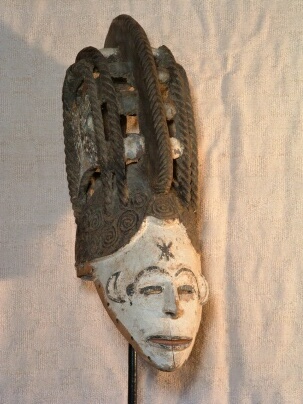
Water Spirit Maiden, Ibo, Nigeria--late 19th Century
These dynamic, "primitive" expressions became a major influence on modern art and a challenge to our aesthetic acceptences.
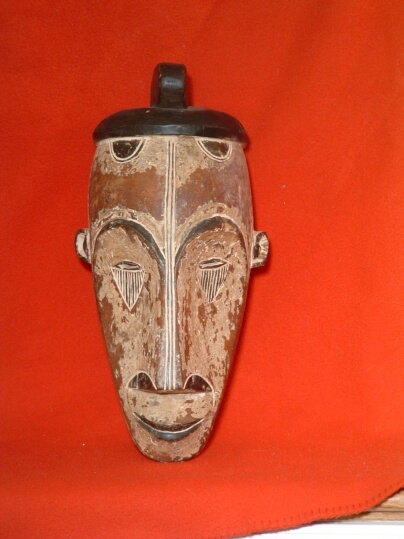
Ngil mask of the Fang people, Gabon, 19th century. Used in a male hierarchical initiation ceremony society to protectively deal with evils besetting the tribe.
Today, one approaches African material in hopes of studying or acquiring something of a period when the work retained the soul of its creators.
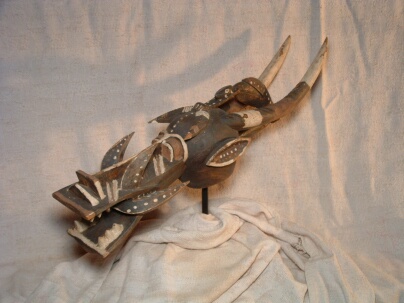
"Waniugo" mask , Senufo, Cote d'Ivoire--- late 19th Century
There is a growing library of reference material available but a knowledgeable inspection is the only way to provide reliable provenance and establish the genuine age of any given object.
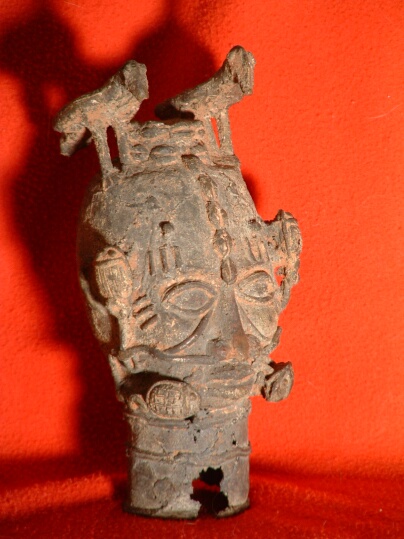
Benin Bronze Bust
Age in African objects is tricky. Climate, decay, insect damage, etc. of what is largely organic material, leads to a low survival rate. Much of what is seen is from the 19th and early 20th century.
The antiquities -centuries old Benin bronzes, fabrics and material taken from cliff burials of the people who preceded the Dogon; the Nok terra-cotta figurines of the 7th-9th century - all this stuff is mostly resident in museums and seldom found elsewhere.
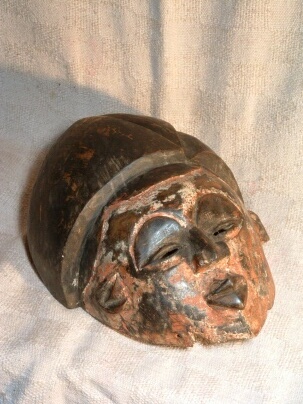
Initiation mask, Ibibio, Nigeria-- early 20th Century
There are pieces being imported by dealers and Africans selling to various ethnic venues. Occasional "finds" may surface as secret society and dance masks. There are some pieces that appear to have been made yesterday and are completely true in all context. They are art, just not as desirable as material with age and provenance.